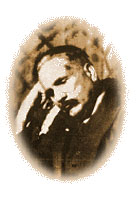FRS (4 January 1643 – 31 March 1727 [OS: 25 December 1642 – 20 March 1726])[1] was an English physicist, mathematician, astronomer, natural philosopher, alchemist, and theologian and one of the most influential men[4] in human history. His Philosophiæ Naturalis Principia Mathematica, published in 1687, is considered to be the most influential book in the history of science. In this work, Newton described universal gravitation and the three laws of motion, laying the groundwork for classical mechanics, which dominated the scientific view of the physical Universe for the next three centuries and is the basis for modern engineering. Newton showed that the motions of objects on Earth and of celestial bodies are governed by the same set of natural laws by demonstrating the consistency between Kepler's laws of planetary motion and his theory of gravitation, thus removing the last doubts about heliocentrism and advancing the scientific revolution.
In mechanics, Newton enunciated the principles of conservation of momentum and angular momentum. In optics, he built the first "practical" reflecting telescope[5] and developed a theory of colour based on the observation that a prism decomposes white light into a visible spectrum. He also formulated an empirical law of cooling and studied the speed of sound.
In mathematics, Newton shares the credit with Gottfried Leibniz for the development of the differential and integral calculus. He also demonstrated the generalised binomial theorem, developed the so-called "Newton's method" for approximating the zeroes of a function, and contributed to the study of power series.
Newton was also highly religious (though unorthodox), producing more work on Biblical hermeneutics than the natural science he is remembered for today.
Newton's stature among scientists remains at the very top rank, as demonstrated by a 2005 survey of scientists in Britain's Royal Society asking who had the greater effect on the history of science, Newton was deemed much more influential than Albert Einstein.[6]

 Muhammad Allama Iqbal was born on November 9th in Sialkot, in the Punjab province of then India (now Pakistan). His initial education was in Lahore, and at the age of 28 he studied in the hallowed halls of Cambridge, gaining a
Muhammad Allama Iqbal was born on November 9th in Sialkot, in the Punjab province of then India (now Pakistan). His initial education was in Lahore, and at the age of 28 he studied in the hallowed halls of Cambridge, gaining a 
